Suicide……or murder by a fellow Mason?
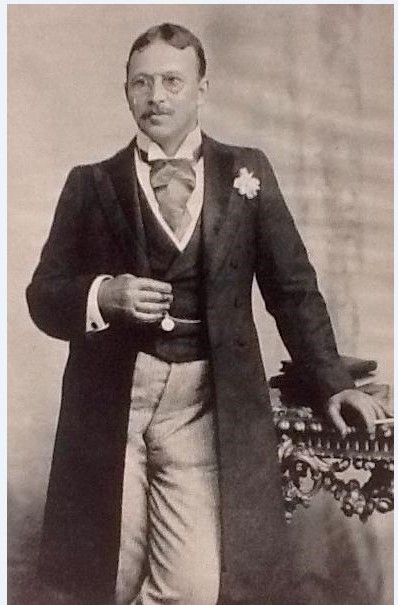
Born in 1851 in the ‘Petticoat Lane’ area of Whitechapel in London’s East End, Barnett ‘Barney’ Isaacs was the son of Isaac Isaacs – a dealer in second-hand clothes and rags – and his wife, Leah, who died when Barney was just two years old.
As teenagers, Barney and his older brother, Henry, helped in their father’s business, did a bit of boxing coached by their father, acted as ‘bouncers’ in pubs (even though Barney was only 5’ 2” tall) and also performed conjuring, acrobatics and juggling at the local music halls. In the halls, they were introduced as ’The Great Henry Isaacs, and Barnett too’ and they became known as ‘the Barnato brothers’ – a name they gradually adopted in preference to Isaacs.
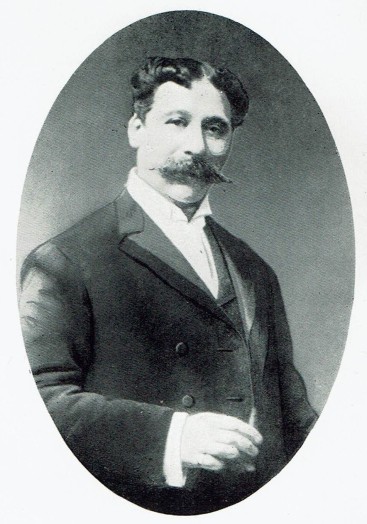
In 1871, Henry sailed out to join some cousins seeking their fortunes in South Africa where, in 1866, diamonds had been discovered. A couple of years later, when Barney was 21, he sailed out to join Henry and, together, they made ends meet by buying and selling a few diamonds as well as entertaining in the beer tents of the mining camps.
After spending a year learning about diamonds, Barney knew they could make much more money by buying their own diggings and they managed to acquire four adjacent claims near Kimberley. From that small start – each Kimberley claim was a patch of land only 31ft square – they went on to buy up and consolidate as many claims as they could afford. In doing so, they became the main rivals of Cecil Rhodes, who was working claims on what had been the De Beers farmland and who had come up with the same idea. In a few short years, the number of separate diamond producing claims in the Kimberley area had been consolidated from well over three thousand to less than one hundred. In 1888, “The Barnato Mine”, as the brothers’ consolidated holdings became known, was described as “the largest and most wealthy in the world”.
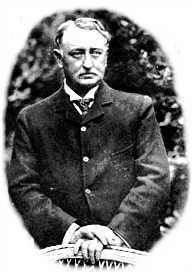
Cecil Rhodes, intent on gaining control of the whole of the Cape’s diamond industry, started negotiations and Barney agreed to a merger of the brothers’ Kimberley Central Diamond Mining Co. with Rhodes’ De Beers mining empire. By doing so, he and Rhodes hoped to control the number of diamonds released on the market and thus improve and maintain prices by keeping the level of supply a little below the level of demand.
Ultimately, in 1889, after a court case brought by disgruntled shareholders who opposed the merger, the Barnatos liquidated their Company and Rhodes bought it with a cheque, then the largest ever written, for £5,338,650.00, of which £4 million went into the brothers’ pockets. Today’s equivalent value of that £4 million, based on UK average earnings, is almost £1.9 billion. Not bad for the juggling sons of an East End rag dealer!
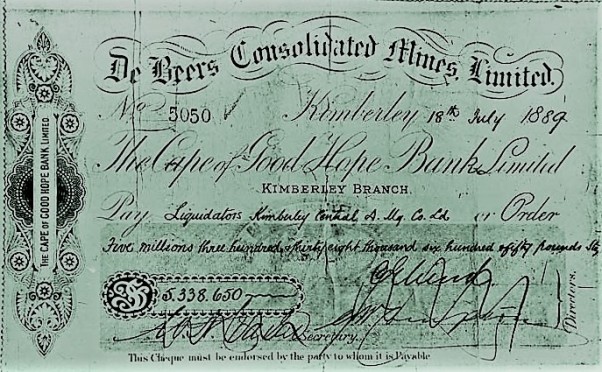
The Barnatos maintained an interest in diamonds, becoming shareholders and life governors of De Beers as well as owning one of only ten firms in the world allowed to buy diamonds from De Beers. But they now turned their main efforts to the pursuit of gold which had been discovered in the Johannesburg region in 1886. Although they were quite late in joining the party, they had large funds at their disposal along with Barney’s acute business acumen. They raised even more cash by forming several mining companies and issuing shares on the London Stock Exchange and quickly set about buying up and consolidating gold claims in the same way as they had with diamonds.
As their holdings and fortunes increased, the brothers took their older sister’s sons under their wings and their nephews, Woolf Joel, Solomon “Solly” Joel and Isaac “Jack” Joel joined the business – all three assumed ‘Barnato’ as a middle name.
On one of his many trips back to London, during January 1886, Barney was initiated into Freemasonry in The Lodge of Joppa No 188 which then met in the Freemason’s Tavern in Great Queen Street. Barney’s nephews, Solly and Jack Joel, were both initiated in January 1888 in Montefiore Lodge No 1017 which then met at the Café Royal in Regent Street.
It is said that, around this time, Barney had visiting cards which featured the motto “I’ll stand you a drink, but I won’t lend you a fiver”. Another story has it that Barney was once attending an upper-class party in a large house where the walls were lined with expensive works of art, when a glamorous Duchess invited him to “come upstairs and examine my Watteau”. Barney followed with great enthusiasm but was reportedly disappointed to find that the lady was referring to an eighteenth-century French painting!
The Masonic interest continued when The Barnato Lodge No 2265 was consecrated in 1888 and met at The Cock Tavern in Islington. The new Lodge was the idea of Masons who were involved in the diamond trade, mostly as merchants, and was named after the Barnato Mine – then “the largest in the world” – rather than the family.
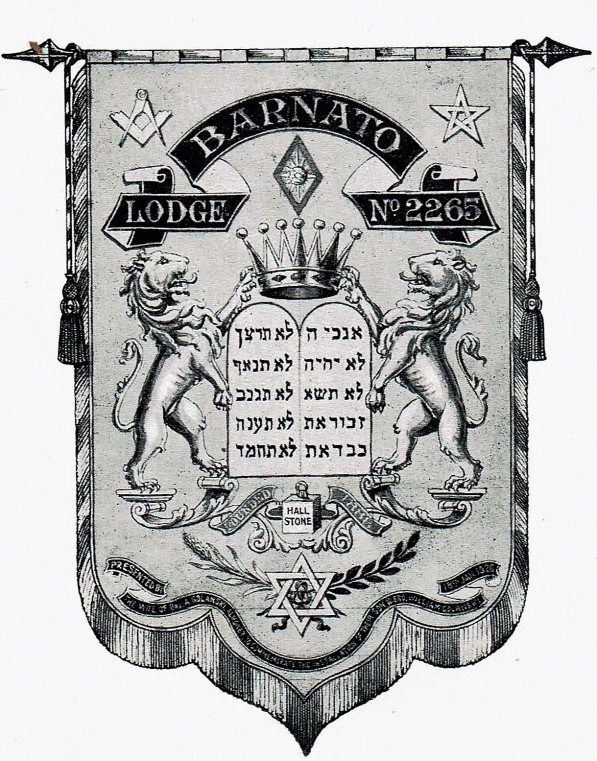
Barney’s brother, Henry Barnato, was its first initiate in July 1888 and his nephews, Solly and Jack Joel, became joining members on the same day. Jack served as Worshipful Master in both 1893 and 1904. Barney himself became a joining member of 2265 in September 1890 along with his nephew, Woolf Joel, who is recorded as having joined from “The Peace and Harmony Lodge of Holland” (there is no record of a Lodge of this name in the UGLE registers). The Barnato Lodge warrant was eventually surrendered and the Lodge was erased in 2016.
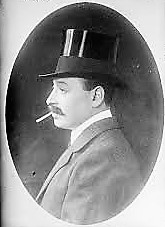
Barney was proud and honoured to have been invited to attend Queen Victoria’s diamond jubilee celebrations and, in June 1897, he and his nephew, Solly Joel, set sail to Southampton from Cape Town on Union Castle’s RMS Scot with Barney’s wife and family. After other relationships, one of which produced a daughter who died at only a few months old, Barney had set up home with South African born Fanny Bees in Kimberley and they married in Chelsea in 1892. The three young children returning to England with their parents were Leah Primrose Barnato, Isaac Henry “Jack” Barnato, who became an RAF pilot, and Woolf “Babe” Barnato, who became a racing driver and chairman of Bentley Motors.
Shortly after three o’clock on the afternoon of June 14th, 1897, when the ship was in the waters around Madeira, Barney was seated on deck with Solly and is said to have suddenly given “a spring” over the rail into the sea and drowned. Barney’s body was embalmed in Madeira and brought back to Southampton where an inquest was held at the South Western Hotel on Friday, June 18th, 1897 before the Coroner, Mr W Coxwell. There were only two witnesses at the inquest.

Solly Joel was the first to testify and gave the statement: “I was a passenger on board the Scot, and the deceased was a fellow passenger. I was walking on deck with him on Monday last at nine minutes past three in the afternoon. I was getting tired, so I asked him to sit down. He said, “Oh, no, let us walk.” We, however, sat down, and he asked me “What is the time?” I looked at my watch, told him, and then I saw him dash by. I had not time, in fact, to close my watch, or even to lift my eyes, when he gave a spring. I threw out my hands to catch him, but only caught the back of his trousers, and he jumped over the side into the sea. I screamed “murder,” and saw the fourth officer, who was sitting dozing, and said, “For God’s sake save him”.
In answer to further questions, Solly said: “at times, he was not in his right mind. One hour he appeared to be quite well, and the next his mind would wander. On the fatal day I noticed his behaviour and made up my mind not to leave him, and I did not. I think he had never shown signs of suicidal mania before.”
The other witness was William Tarrant Clifford, the fourth officer, who gave the statement: “I had seen and spoken to Mr Barnato once or twice on the journey, and noticed nothing peculiar either in his appearance or actions. On the 14th, when in latitude 31.8N and 17.13 W., I saw him leap overboard. Mr Joel said something I don’t remember, and I think I said “I’ll go,” and with that, I pulled off my coat and jumped in after him. I did not reach the body, though I saw it some way off. I was subsequently picked up by the ship’s boat.” In answer to a further question, he told the jury that the body, which was floating face down, was also hauled into the boat and taken back to the ship.
The jury, after a short retirement, returned a verdict that the deceased jumped overboard, and met his death by drowning while temporarily insane.
Several unanswered (and unasked) questions arise. You can no doubt come up with your own, but here are a few to start with:
-
As there was no post-mortem, how was it established without doubt that death was caused by drowning?
-
Why was the body floating so soon after drowning? This indicates there may have been air, rather than water, in the lungs. The bodies of the victims of drowning usually quickly sink, whereas those that are dead or unconscious before they reach the water and land face-down tend to float as there is no way for air to escape.
-
Why did Solly shout “murder” rather than something like “help”? Was it actually Barney who shouted “murder”?
-
Solly said that the fourth officer (Clifford) was dozing. If so, how did Clifford see Barney ‘leap’ rather than just see Solly ‘catch’ the back of Barney’s trousers after the shout roused him?
And here are a few more points that couldn’t have been known at the time of the inquest:
-
Fanny didn’t attend the inquest, but she subsequently denied that Barney was “not in his right mind” at any time on the voyage.
-
After the inquest, the fourth officer, William Tarrant Clifford, was rewarded by the Joels with a payment of £1,000 and was promised that they would “use all their great influence to further his advancement”. Today’s equivalent value of £1000 in 1897, calculated using average earnings, is in excess of £400,000.
In her biography, ‘Spreading My Wings’ (Pub. 1994 Patrick Stephens Ltd.), Barney’s granddaughter, Diana Barnato Walker MBE (who was the first woman aviator to break the sound barrier) shares this information:
-
The fourth officer, Clifford, the only witness apart from Solly who gave evidence at the inquest, was a good friend of Solly’s and went shooting with him on his English estate.
-
Solly’s son, Stanhope Joel, told her that Solly had “pushed” Barney and “gave him the heave-ho overboard”.
-
Diana says that Solly may have “biffed” Barney before pushing him overboard. (Note: If Barney was knocked unconscious, this could explain why his body was floating).
-
Solly was determined to get control of the South African companies. “It was said that Solly masterminded a phoney indictment of illicit diamond buying against his brother Jack”. “My Uncle Jack didn’t wait for the case to come up but hopped it back to England…where he ran the English side of the business well out of Solly’s hair.”
-
“After Jack’s return to England, the only people left to thwart Solly were my Grandfather, Barney, and his nephew Woolf Joel” (Solly’s brother).
-
The year after Barney’s death, in 1898, “Woolf suddenly became the victim of a blackmailer called Von Veltheim” who shot Woolf dead when he refused to pay up but only got a two-year prison sentence for his crime. Solly’s son, Stanhope, suggested that “Solly probably paid for Von Veltheim’s defence”. (Note: In 1908, Von Veltheim also tried to blackmail Solly).
With Barney and Woolf now dead, Jack confined to England and Henry in poor health taking little interest in business affairs, Solly now had a clear run and quickly took virtually full control of the business, Johannesburg Consolidated Investments (JCI).
As a final postscript to this bizarre tale, more than 25 years after Barney was killed, a two-year investigation of JCI’s books was achieved via court actions brought by Barney’s family. This revealed that shortly before Barney’s death, Solly had, in Diana’s words, “been diddling Barney out of well-nigh one million pounds” which impacted the family’s inheritance. Solly was forced to pay the Barnato side of the family £960,000 (today’s equivalent is around £150 million) and, a short time later, paid a further large sum representing almost 30 years’ interest.
Suicide……………… or murder?
RIP Bro Barney Barnato, 1851-1897
Peter Reeve and Mike Neville, February 2018
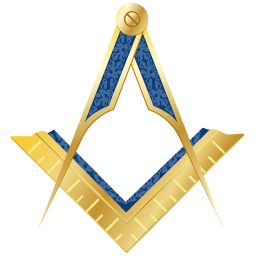
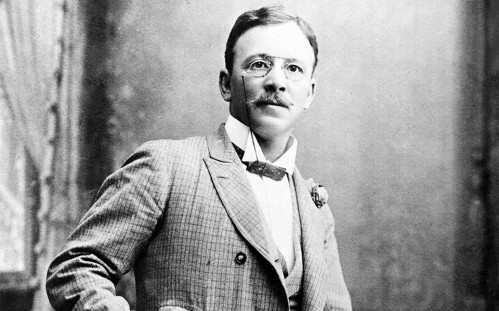
whaaaat!
LikeLike
It was always claimed by my grandfather, that my great grandfather killed Barney Barnato on a ship…he was an angry local from Kimberley… No further details were divulged.
LikeLiked by 1 person
Very interesting – are you able to share the name of your grandfather with us?
LikeLike
Very interesting – are you able to share the name of your great grandfather with us?
LikeLike